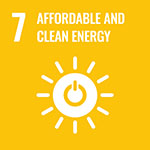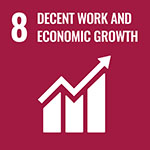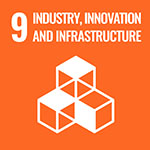Corporate & Investment Banking
Corporate & Investment Banking provides companies and institutions with a full spectrum of financing, deposits and advisory services. The division’s services include business transfers, corporate mergers and financing as well as preparing and advising on bond and share IPOs in collaboration with the Markets division. The Managing Director of Corporate & Investment Banking is Ásgeir H. Reykfjörð Gylfason, Deputy CEO of Arion Bank.

Corporate Banking provides comprehensive financial services and customized solutions to large and medium-sized companies. Many of Iceland’s most established companies enjoy strong business relationships with the Bank and have been clients of the Bank or its predecessors for decades. Developing long-term relationships based on trust and a problem-solving approach is key to success. Corporate Banking has a team of employees with a diverse range of education, expertise and decades of experience in the financial sector. The division is made up of three teams. The Seafood and Services team works with seafood and aquaculture companies both in Iceland and overseas and also Iceland’s major companies in sectors as diverse as tourism, imports, retail, information technology, investment and insurance. The Real Estate and Infrastructure team provides specialized services to companies in the real estate and energy sectors and also service companies in the telecom, transportation, heavy industry and other sectors. The Analysis and Operations Team engages in a range of tasks for customers and the Bank itself, including general services, analysis, credit control and brokering loans to institutional investors. The Head of Corporate Banking is Jón Finnbogason, Chief Credit Officer of Arion Bank.
Corporate Finance provides M&A advisory services and is a leading manager of stock market listings in collaboration with the Bank’s Markets division. Corporate Finance’s clients include some of the largest companies, main growth companies and major investors in Iceland. Our team has extensive experience and a variety of educational and professional backgrounds and boasts a proven track record of success. The Head of Corporate Finance is Lýður Þór Þorgeirsson.
Facing challenges in an instructive year
The global pandemic had a profound impact on the Bank as a whole and on the operations of Corporate & Investment Banking. A key priority was providing our clients with clear information on how to resolve any issues caused by the pandemic. The majority of employees began to work from home. The heavy investment in technology infrastructure in recent years proved invaluable as the Bank was able to provide our clients with swift and immediate solutions.
Corporate Finance continued to support and work closely with companies in Iceland, collaborating with many of the nation’s most exciting growth companies. One of these companies plays a key role in the complex task facing the global community a present, distributing a coronavirus vaccine. Arion Bank has also been a leading supporter of the growth and development of aquaculture in Iceland. This thriving sector took a huge leap forward in Iceland with an IPO in Norway managed by Corporate Finance. Aquaculture has provided a huge boost to the economies of some of Iceland’s most fragile communities and has become a key source of export revenue for the Icelandic economy. Arion Bank will continue to place an emphasis on the securities markets and supporting international trade and growth companies.
Corporate Finance continued to support and work closely with companies in Iceland, collaborating with many of the nation’s most exciting growth companies. One of these companies plays a key role in the complex task facing the global community a present, distributing a coronavirus vaccine.



Sustainability and environmental issues
Arion Bank has adopted a clear policy on sustainability and environmental and climate issues. The Bank’s sustainability policy is entitled Together we make good things happen which is epitomized by our commitment to working responsibly in harmony with the society and the environment. Our employees are guided by this policy in their work, and informed discussion and responsible decision-making is integral to what we do. The division’s commitment to sustainability and environmental issues is underscored by the fact that all Corporate Banking’s loans to the energy sector are in renewable energy. The Bank’s loans to the seafood sector facilitate the sustainable exploitation of resources, and all properties financed by Corporate Banking use geothermal energy for heating.
During the year procedures were devised for evaluating green assets in the Bank’s loan portfolio. Corporate & Investment Banking subsequently undertook an extensive analysis of its loan portfolio, classifying loans as green where appropriate. Divisions across the Bank combined to create a green loan framework which will benefit those customers who wish to place a focus on environmental and social issues in their business.
Divisions across the Bank combined to create a green loan framework which will benefit those customers who wish to place a focus on environmental and social issues in their business.
Corporate & Investment Banking’s active role in the development of the economy aligns with UN Sustainable Development Goals number 7 on affordable and clean energy, number 8 on decent work and economic growth and number 9 on industry, innovation and infrastructure.
Operations in 2020, interest-bearing assets at year-end, loan book by sector
The division’s interest-bearing assets amounted to ISK 317 billion at year-end. Loans to customers amounted to ISK 310 billion, or 38% of total loans to customers and 79% of corporate loans.
The corporate banking loan portofolio by sector 31.12.2020
Corporate Banking’s loan portfolio broadly spans the Icelandic business sector. The largest sectors in Corporate Banking’s loan portfolio are real estate and related business (33%), seafood (25%), followed by trade and services, and financial and insurance, each with 11%, industry (8%), telecommunications and IT (6%) and other sectors (5%).